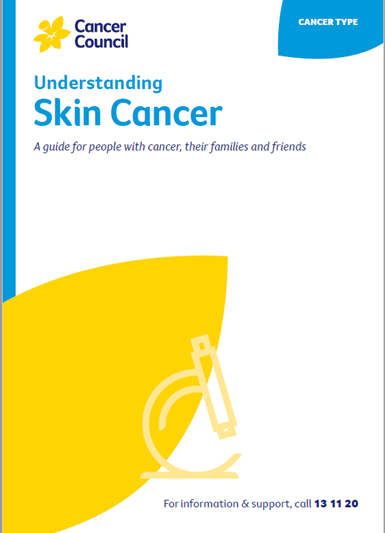- Home
- Skin cancer
- Diagnosis
- Skin biopsy
Skin biopsy
If the doctor feels they can diagnose the skin cancer by examining the spot, you may not need any further tests before having treatment. However, it’s not always possible to tell the difference between a skin cancer and a non-cancerous skin spot just by looking at it. If there is any doubt, the doctor may need to take a tissue sample (biopsy) to confirm the diagnosis.
A biopsy is a quick and simple procedure that is usually done in the doctor’s room. You will be given a local anaesthetic to numb the area, then the doctor will either:
- completely cut out the spot and a small amount of healthy tissue around it to be tested (excision biopsy)
- take a small piece of tissue from the spot to be tested (shave or punch biopsy).
Stitches may be used to close a larger wound. After a biopsy, your doctor will give you instructions on how to look after the wound. The biopsy skin tissue is sent to a laboratory where a pathologist examines it under a microscope. Your doctor will get the results in 1–2 weeks.
If all the cancer and a margin of healthy tissue are removed during the biopsy, this may be the only treatment you need. If the doctor has only taken a small piece from a larger spot, and this is found to be cancer, you will need to go back to have the rest of the cancerous spot removed.
Learn more about the different types of skin cancer.
→ READ MORE: Staging and prognosis for skin cancer
Podcast: Tests and Cancer
Listen to more of our podcast for people affected by cancer
A/Prof Victoria Mar, Director, Victorian Melanoma Service, Alfred Hospital and Monash University, VIC; Tracey Bilson, Consumer; Raelene Buchan, Consumer; Alison Button-Sloan, Consumer; Dr Margaret Chua, Radiation Oncologist, and the Skin Radiation Oncology team, Peter MacCallum Cancer Centre, VIC; Prof Anne Cust, Deputy Director, The Daffodil Centre, The University of Sydney and Cancer Council NSW, Chair, National Skin Cancer Committee, Cancer Council, and faculty member, Melanoma Institute Australia; A/Prof Paul Fishburn, Skin Cancer Doctor, Norwest Skin Cancer Centre, NSW and Faculty of Medicine, University of Queensland; Danielle Goss, Melanoma Clinical Nurse Specialist, Amie St Clair Melanoma (part of Melanoma Institute Australia), Wagga Wagga, NSW; Louise Pellerade, 13 11 20 Consultant, Cancer Council WA: Dr Shireen Sidhu, Head of Dermatology, The Royal Adelaide Hospital, SA; Dr Amelia Smit, Research Fellow – Melanoma and Skin Cancer, The Daffodil Centre, The University of Sydney and Cancer Council NSW; Dr Tony Tonks, Plastic and Reconstructive Surgeon, Canberra Plastic Surgery, ACT.
View the Cancer Council NSW editorial policy.
View all publications or call 13 11 20 for free printed copies.


